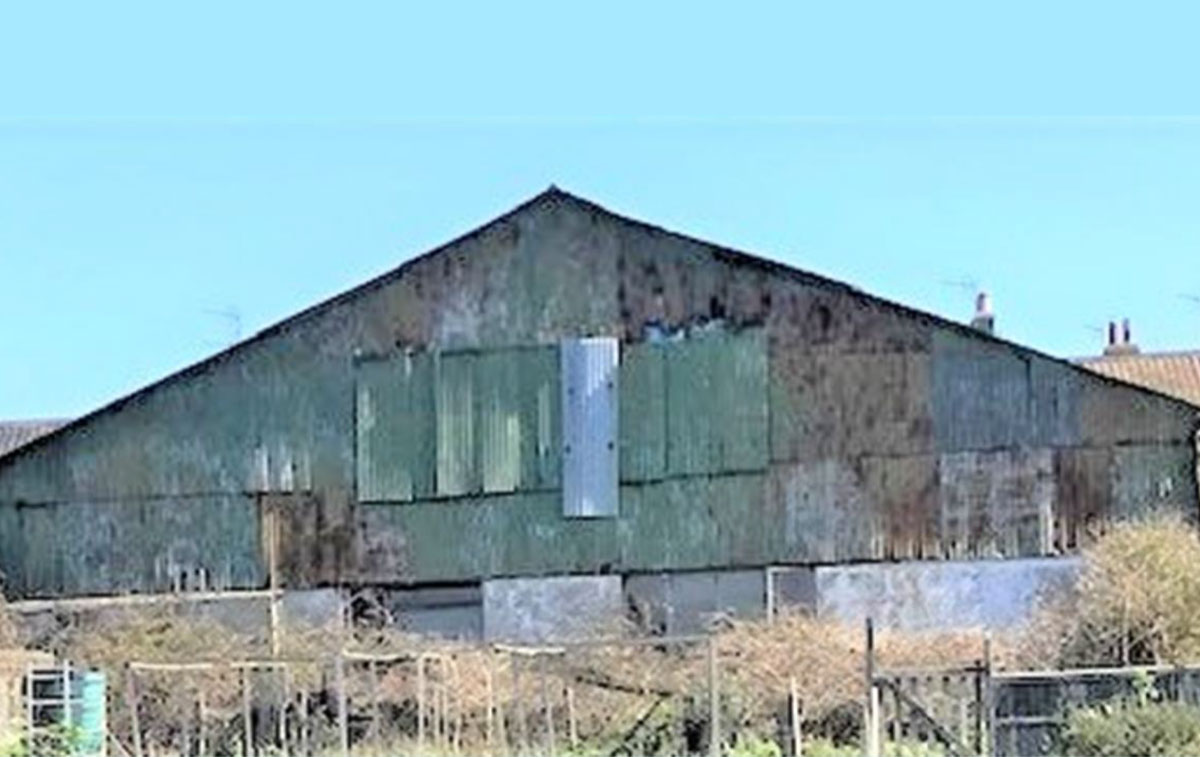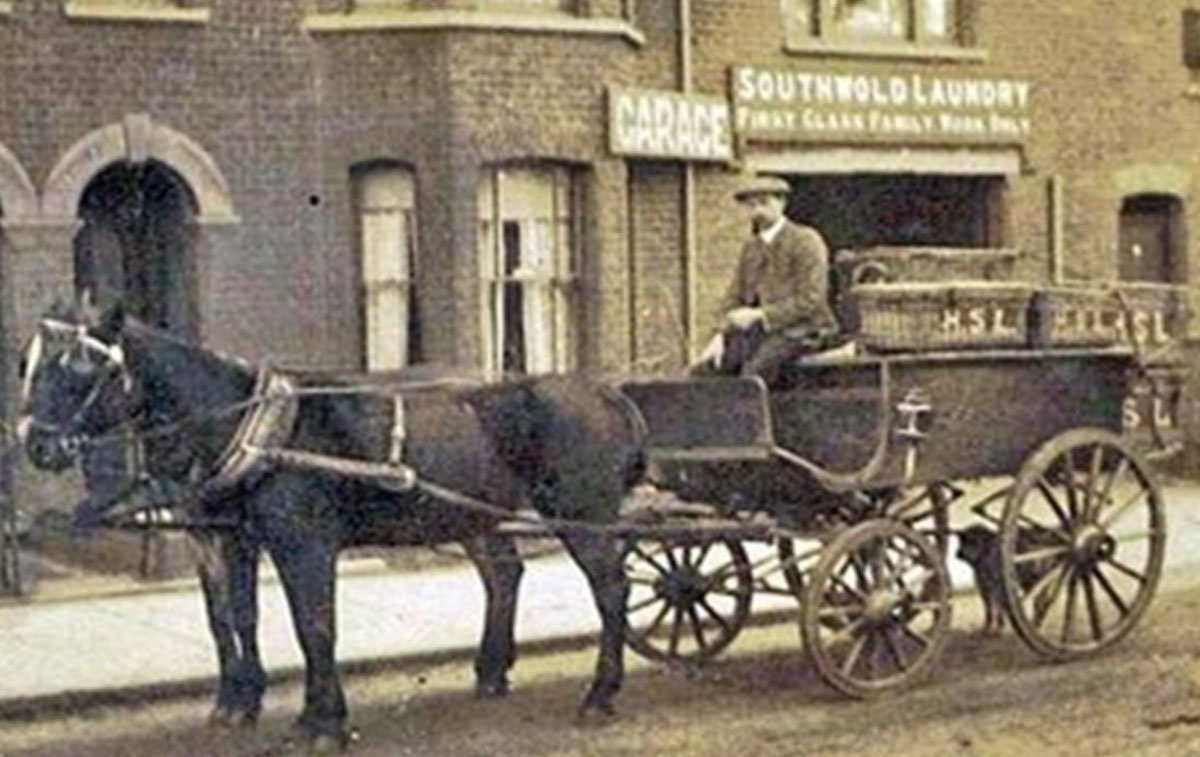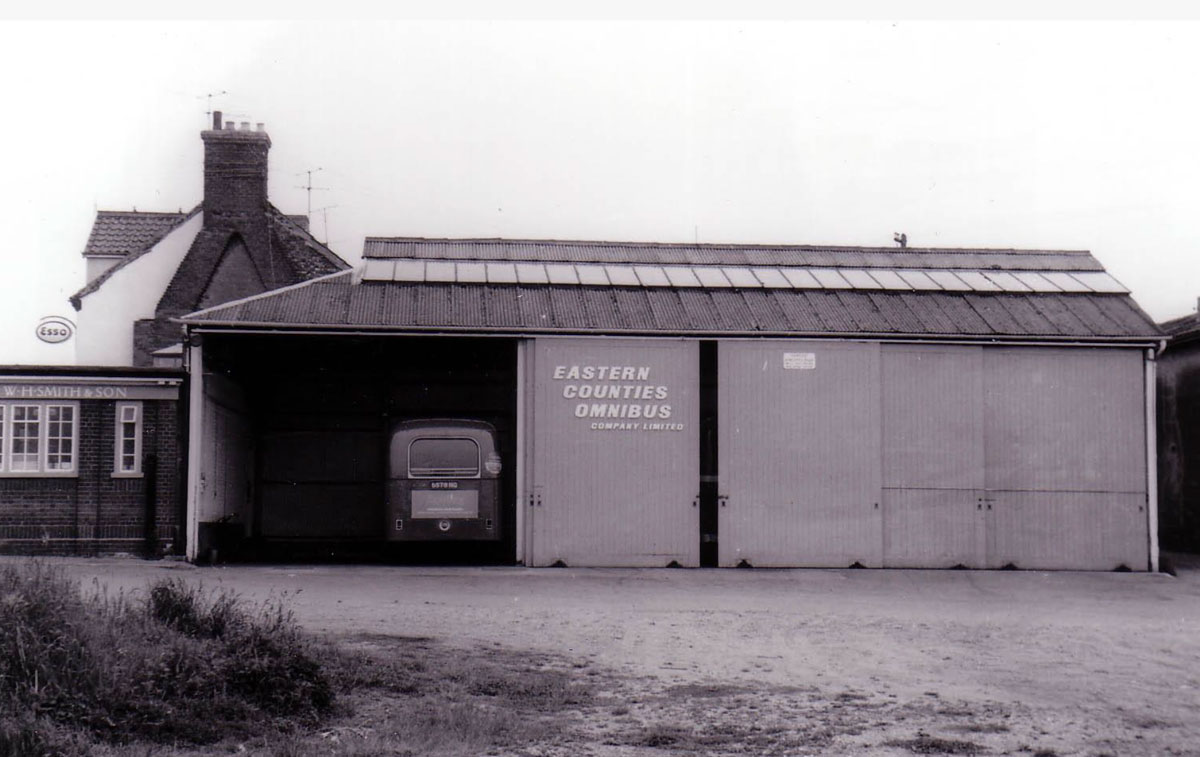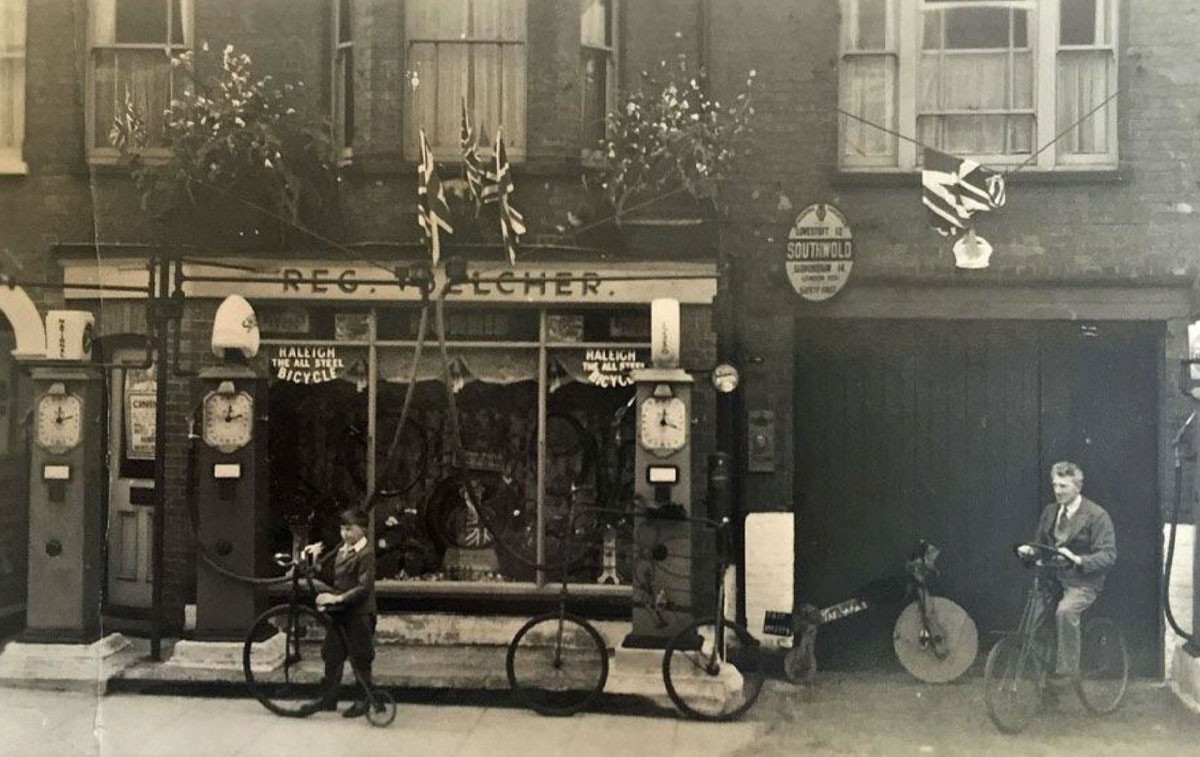Station Yard’s dilapidated condition has long been a concern to the Town Council. In March 2021 Southwold Town Council agreed to procure demolition contractors as a first step in creating new employment opportunities in the Town. Previously, it had commissioned an updated business plan for the site in order to understand the impact of the Covid-19 pandemic on the types of employment space required.
Station Yard has been used for employment purposes since the end of the Victorian era. The different businesses are a microscopic study of the town and country’s changing economy over many generations. This part of the town was one of the last parts to be developed in the 19th century. Hurren Terrace, which is sited at the end of Station Road, and Stanley Cottages on Blyth Road, were built in the 1890’s. Southwold and Son records a steam laundry operating from the Yard behind the housing in 1901.

In the 1920s, with the rise in the automobile as a primary means of transport, branch railway lines, like the Southwold Railway, became redundant. In 1929, the expanding Eastern Omnibus Company built a one storey parcel sorting and waiting room on the corner of Blyth Road and Station Road and a bus depot and repair garage facing Blyth Road.
Later, WH Smith took over the waiting room. Subsequently, it was occupied by various small independent traders who sold confectioneries, tobacco and newspapers. Eventually, it became a convenience store. When this shop was operated by the Barbrook family in 2005, it was named Little Joes after Matthew and Katie Barbrook’s first child. (The Barbrooks now operate Little Gems in the Market Place.) Eventually, it became Clancy’s when the lease was taken over by Teresa and Derek Baggott in 2015.

The new development will retain a convenience store on this corner. The Town Council consider this to be an important amenity for people living in and coming to the town and foresees a bright future for the business because of the growth planned in this area. Hastoe Housing Association is planning a development of 13 dwellings on the Fire Station site and the Southwold Neighbourhood Plan allocates the Police Station site for community and permanently affordable housing. Anyone with a potential interest in renting the shop should contact the Town Clerk, Mrs Lesley Beevor.
The most recent occupants of the Eastern Omnibus depot and garage were Finch Motors and a cycle shop operated by the late Barry Cambridge. When the Railway closed, other new trades sprang up and found employment space in Station Yard. These included a removal company which transported fish from Blackshore to Lowestoft. John Tooke operated a removal company there, for many years. A prominent business was Belcher’s all-service (including car hire) automobile, motorcycle and bicycle business, established in 1924. The residential ground floors of the houses on either side were transformed into Belcher’s show rooms and petrol pumps were established on the pavement, with service and repairs done in the Yard. For twenty years, Wiggy Goldsmith had a welding shop in the Yard. Later, the Yard was used by an automobile paint shop and, for a time, Crown Electrical.

In 2000, when the leases of the tenants who then occupied the site were coming to end, the Town Council commissioned Akermans of Framlingham to provide a development appraisal for Station Yard. The industrial sheds erected in the 1920s and 1930s were coming to the end of their life cycle and the dilapidated Yard detracted from the visual appearance of the Town. Akermans concluded that the buildings were ‘substandard by modern requirements’. The Town Council decided on a staged approach. The first phase would be to improve Hurren Terrace by creating a parade of retail premises on the ground floor that could provide an affordable rent for independent businesses who were increasingly unable to afford the High Street’s rents. It also decided to modernise the flats above to create affordable dwellings for local people. The second phase would be to redevelop the corner shop and Station Yard as a mix of affordable housing and employment space for small and start-up businesses. In minutes of a Town Council meeting in 2005, the then Town Clerk, Jenny Hursell, summarised the discussion: ‘From anecdotal evidence all of these are in short supply in the town and surrounding area.’ This second stage was postponed until the Town Council could obtain additional funding and, in the meantime, premises were given final leases with an end date of 2019.
Ten years later, when Southwold Neighbourhood Plan team began conducting research into the town’s sustainability issues, little had changed – affordable housing was still insufficient, and businesses complained of the acute lack of affordable employment space.

The Neighbourhood Plan Team also discovered that lack of affordable employment space was not just a Southwold problem. 88.7% of the East Suffolk’s economy is based on microbusinesses employing between 1 to 10 people. As noted in the East Suffolk Economic Strategy, ‘There is insufficient existing provision for small businesses and limited move-on space – and developers are reluctant to build speculatively.’ This is because developers expect a return of 20% profit on their investment, and small businesses cannot afford commercial rents. The lack of affordable, flexible business space was acting as a brake on economic opportunities for local people. The disinterest of property developers in providing such space requires public bodies or not-for-profit organisations to step in to fill the gap.
As 2019 approached, a decision on the future of Station Yard became increasingly urgent. Repairs were needed to keep the industrial sheds minimally habitable and their cost outweighed the value of the decaying structures.
In January 2017 Southwold received confirmation from the Department for Communities & Local Government (DCLG) that its bid to become a Coastal Community Team had been accepted. The CCT is a local partnership consisting of the Town Council, District Council and a range of stakeholders representing the community who have an understanding of the issues facing the area and can develop an effective forward strategy for the town.
The CCT successfully applied for a c£1 million grant to complete a funding package in relation to regenerating the area known as Station Yard. The funding included much needed support for the town’s existing businesses – a Town Development Manager to head a team of three as part of a joint and inseverable package to promote employment at the site and throughout the wider town.
The rest of the funding package for the Station Yard redevelopment comes from the leasehold sale of two properties on Strickland Place, whose occupancy is restricted to principal residences. A young family with children is in the process of moving into one of these properties.
The Coastal Communities grant required a robust business plan as part of the application process. Following the pandemic, the Town Council decided to revisit the business plan to understand the impact of Covid-19 on the local economy and the demand for employment. After a tendering process, it retained David Lock Associates (DLA) to conduct an independent business plan review with a fresh set of eyes, taking account of the shift from office-based work in metropolitan areas to remote working in rural areas and other Covid-19 economic impacts.
At a well-attended public Zoom meeting, DLA presented the results of its review and answered related questions. Although Covid-19 has revealed that some degree of remote working is desirable and more efficient, working from home is less than ideal for many people. Instead, the workplace of the future is expected to be a mix of office, home, and regionally dispersed employment centres. The Station Yard hub would draw on demand from businesses throughout East Suffolk that are within an easy commute from Southwold. The local operators and agents who were consulted were strongly of the view that the proposed hub should cater to as wide a variety of business types as possible, and that there was sufficient demand to make Station Yard a financially sustainable investment.
Throughout its history, there has never been public parking for Station Yard. This will now change. The Millennium Foundation, using a field donated by the Town Council, has just obtained planning permission to build a 150 space car park opposite the Stella Peskett Hall. Works are scheduled to begin in late 2021 and should be completed within the year. The new car park will be a great asset to the town, serving the needs of employees, residents and visitors.
The DLA updated Business Case Review may be found on the Town Council website southwoldtown.com along with all other reports and minutes of meetings related to Station Yard.